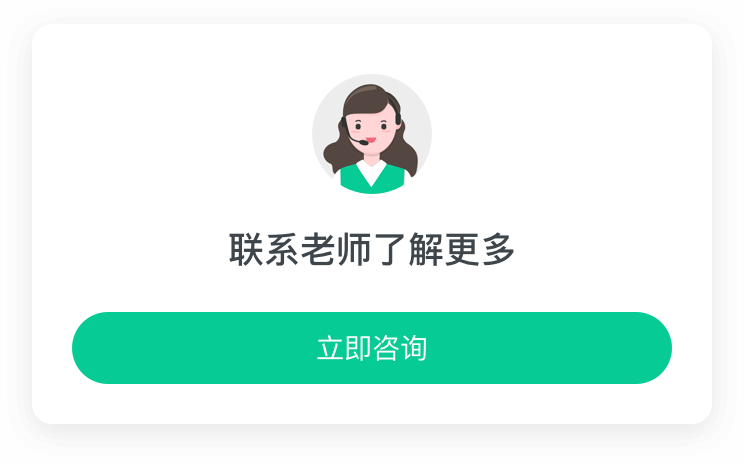學(xué)會(huì)正確發(fā)郵件 讓你的生活更美好
作者:yxflying編譯
來(lái)源:Business Insider
2013-07-25 09:00
I’ve covered a lot of research on how to make your life better but many people struggle with implementing changes because it seems like a major undertaking. It doesn’t have to be.
我已經(jīng)給大家介紹了很多能讓你的生活更加美好的研究,但是很多人掙扎著進(jìn)行改變,因?yàn)檫@看來(lái)像是一項(xiàng)重大任務(wù)。其實(shí)不必如此。
You can make strides in 5 fundamental areas by just sending 5 emails.
你只需發(fā)送5封電子郵件,就可以在5個(gè)重要領(lǐng)域內(nèi)取得進(jìn)步。
happiness
HAPPINESS
幸福
Every morning send a friend, family member or co-worker an email to say thanks for something.
每天早晨,給朋友、家人或同事發(fā)封電子郵件, 向他們表示感謝。
Might sound silly but there’s tons and tons and tons of research showing that over time, this alone – one silly email a day – can make you happier.
這種做法聽(tīng)上去有點(diǎn)兒傻,但是大量的研究表明,隨著時(shí)間的流逝,這種做法——每天發(fā)一封這樣的郵件——可以讓你更加幸福。
Via Harvard professor Shawn Achor’s The Happiness Advantage:
哈佛大學(xué)肖恩-阿克爾教授的《幸福優(yōu)勢(shì)》中有這樣一段話(huà):
This is why I often ask managers to write an e-mail of praise or thanks to a friend, family member, or colleague each morning before they start their day’s work—not just because it contributes to their own happiness, but because it very literally cements a relationship.
這就是為什么我讓經(jīng)理們每天早晨在開(kāi)始一天的工作前向朋友、家人或同事寫(xiě)一封贊美或感謝的電子郵件——不僅僅是因?yàn)檫@樣會(huì)增進(jìn)他們自己的幸福感,而且因?yàn)檫@樣能用文字的方式鞏固彼此間的關(guān)系。
job
JOB
工作
At the end of the week, send your boss an email and sum up what you’ve accomplished.
在一周工作結(jié)束的時(shí)候,向老板發(fā)封電子郵件,總結(jié)一下你所完成的工作。
They probably have no idea what you’re doing with your time. They’re busy. They have their own problems.
他們可能并不知道你都做了些什么。他們很忙。他們有自己的難題。
For your boss, this let’s them know what you’ve been up to without having to ask and saves them from wondering and worrying. They’ll appreciate it and probably come to rely on it.
對(duì)你的老板來(lái)說(shuō),這樣做能讓他們知道你都做了什么,讓他們不必去問(wèn),讓他們不必好奇和擔(dān)心。他們會(huì)欣賞這一做法,很可能慢慢地依賴(lài)上它。
For you, it’s proactive and shows off your efforts, which Stanford professor Jeffrey Pfeffer is the key to success in any organization:
對(duì)你來(lái)說(shuō),這是種積極主動(dòng)的行為,顯示出了你的努力,斯坦福大學(xué)杰弗里-普費(fèi)弗教授認(rèn)為它是任何組織成功的關(guān)鍵。
…you should make sure that your performance is visible to your boss and your accomplishments are visible. Your superiors in the organization have their own jobs, are managing their own careers, are busy human beings. And you should not assume that they’re spending all their time thinking about you and worrying about you and your career.
…你應(yīng)該確保你的老板能看到你的表現(xiàn), 也能看到你的成就。在組織中你的上級(jí)有自己的工作,管理著他們自己的職業(yè),他們非常忙。你不要認(rèn)為他們會(huì)花所有的時(shí)間來(lái)思考你的事情,擔(dān)心你和你的職業(yè)。
growth
GROWTH
成長(zhǎng)
Once a week email a potential mentor.
每周給一名潛在的導(dǎo)師發(fā)封電子郵件。
Doesn’t have to be related to your job. Who do you admire that you could learn from?
不一定非得和工作相關(guān)。 誰(shuí)是你崇拜并想學(xué)習(xí)的人?
As I’ve blogged about before, mentors are key to success.
就像我以前博客里寫(xiě)的那樣,導(dǎo)師是成功的關(guān)鍵。
Via The Genius in All of Us: New Insights into Genetics, Talent, and IQ:
《天才的基因:關(guān)于IQ、天賦與遺傳基因》中的一段話(huà):
Any person lucky enough to have had one great teacher who inspired, advised, critiqued, and had endless faith in her student’s ability will tell you what a difference that person has made in her life. “Most students who become interested in an academic subject do so because they have met a teacher who was able to pique their interest,” write Csikszentmihályi, Rathunde, and Whalen. It is yet another great irony of the giftedness myth: in the final analysis, the true road to success lies not in a person’s molecular structure, but in his developing the most productive attitudes and identifying magnificent external resources.
任何人遇到能啟發(fā)、建議、批評(píng)并相信學(xué)生能力的好老師都非常幸運(yùn),他們會(huì)告訴你老師讓他的生活發(fā)生了何種變化?!按蟛糠謱?duì)學(xué)術(shù)研究感興趣的人都是因?yàn)樗麄冇龅搅四芗て鹚麄兣d趣的老師,” 米哈伊、拉桑德和惠倫寫(xiě)到。這又是天賦神話(huà)的一大諷刺:在最終的分析中,通往成功真正的道路不在于個(gè)人的分子結(jié)構(gòu),而在于他養(yǎng)成最有效率的心態(tài)和識(shí)別出好的外部資源。
This is one of those things everyone seems to know but nobody does anything about.
這一點(diǎn)兒大家好像都知道,但是卻沒(méi)人去做。
It’s the age of the internet, folks. If you have a Google and half an ounce of resourcefulness it’s not that hard to find almost anyone’s email address. If they have a website, their email is probably listed on it.
朋友們,現(xiàn)在是互聯(lián)網(wǎng)時(shí)代。如果你知道Google, 用一點(diǎn)兒小聰明,基本上任何人的電子郵件地址都不難找到。如果他們有網(wǎng)站,那他們的電子郵件地址也可能就列在上面。
friendship
FRIENDSHIP
友誼
Email a good friend and make plans.
給好朋友發(fā)電子郵件并制定計(jì)劃。
What does research say keeps friendships alive? Staying in touch every 2 weeks.
研究表明如何能保持友誼? 每?jī)芍苈?lián)系一次。
Got 14 friends? Then you need to be emailing somebody every day.
有14個(gè)朋友?那你需要每天都給一個(gè)朋友發(fā)封電子郵件。
And what should you email them about? Make plans to get together.
那寫(xiě)些什么內(nèi)容呢? 制定相聚的計(jì)劃。
Research shows the best use of electronic communication is to facilitate face-to-face interaction:
研究表明,使用電子方式聯(lián)系的最佳方式是用它協(xié)助面對(duì)面的交互。
The results were unequivocal. “The greater the proportion of face-to-face interactions, the less lonely you are,” he says. “The greater the proportion of online interactions, the lonelier you are.” Surely, I suggest to Cacioppo, this means that Facebook and the like inevitably make people lonelier. He disagrees.Facebook is merely a tool, he says, and like any tool, its effectiveness will depend on its user. “If you use Facebook to increase face-to-face contact,” he says, “it increases social capital.” So if social media let you organize a game of football among your friends, that’s healthy. If you turn to social media instead of playing football, however, that’s unhealthy.
結(jié)果是很明確的?!懊鎸?duì)面交互的部分越多,你感到孤獨(dú)的可能性就越少,”他說(shuō)到?!霸诰€(xiàn)交互的部分越多,你就會(huì)感到越孤獨(dú)?!?當(dāng)然,我給卡西奧普建議到, 這表明Facebook和類(lèi)似的網(wǎng)絡(luò)聯(lián)系方式不可避免地讓人感到孤獨(dú)。 他不同意我的看法。他說(shuō),F(xiàn)acebook只是一個(gè)工具,像其他工具一樣,它的有效性取決于用戶(hù)?!叭绻闶褂肍acebook來(lái)增加面對(duì)面的交流,”他說(shuō),“這會(huì)增加社交資本?!?如果你用社交媒體在朋友間組織一場(chǎng)足球賽,這是有益健康的。但如果你使用社交媒體代替踢足球,那就不健康了。
career
CAREER
事業(yè)
Send an email to someone you know (but don’t know very well) and check in.
給你認(rèn)識(shí)(但不是很熟)的人發(fā)封電子郵件并聯(lián)系一下。
These “weak ties” are the primary source of future career opportunities.
這些“弱關(guān)系”是未來(lái)職業(yè)機(jī)遇的主要來(lái)源。
From Charles Duhigg’s excellent book The Power of Habit: Why We Do What We Do in Life and Business:
查爾斯-杜希格的優(yōu)秀著作:《習(xí)慣的力量:為什么我們這樣生活,那樣工作?》中的一段話(huà):
In fact, in landing a job, Granovetter discovered, weak-tie acquaintances were often more important than strong-tie friends because weak ties give us access to social networks where we don’t otherwise belong. Many of the people Granovetter studied had learned about new job opportunities through weak ties, rather than from close friends, which makes sense because we talk to our closest friends all the time, or work alongside them or read the same blogs. By the time they have heard about a new opportunity, we probably know about it, as well. On the other hand, our weak-tie acquaintances— the people we bump into every six months— are the ones who tell us about jobs we would otherwise never hear about.
事實(shí)上,在找工作方面,格蘭諾維特發(fā)現(xiàn),弱關(guān)系比強(qiáng)關(guān)系要更重要,因?yàn)槿蹶P(guān)系能讓我們能接觸到新的社交圈。格蘭諾維特研究的很多人都是通過(guò)弱關(guān)系找到了新的工作機(jī)會(huì), 而不是通過(guò)親近的朋友找到的。這也講得通,因?yàn)槲覀円恢焙陀H近的朋友交流, 或和他們一起工作或閱讀相同的博客。當(dāng)他們聽(tīng)到新的機(jī)會(huì)時(shí),我們可能也知道了。另一方面,我們的弱關(guān)系——每六個(gè)月碰見(jiàn)一次的人——會(huì)告訴我們從沒(méi)聽(tīng)說(shuō)過(guò)的工作機(jī)會(huì)。
“But I don’t know what to say.” Do any little thing that benefits them, not you. Try Adam Rifkin’s 5 minute favor.
“但我不知道說(shuō)什么?!弊鲆恍┬∈虑椋屗耸芤?,而不是讓自己受益。試試 亞當(dāng)-里夫金的5分鐘助人為樂(lè)。
Or just send them a link they might find useful.
或給他們發(fā)送一個(gè)對(duì)他們可能有用的鏈接。?










